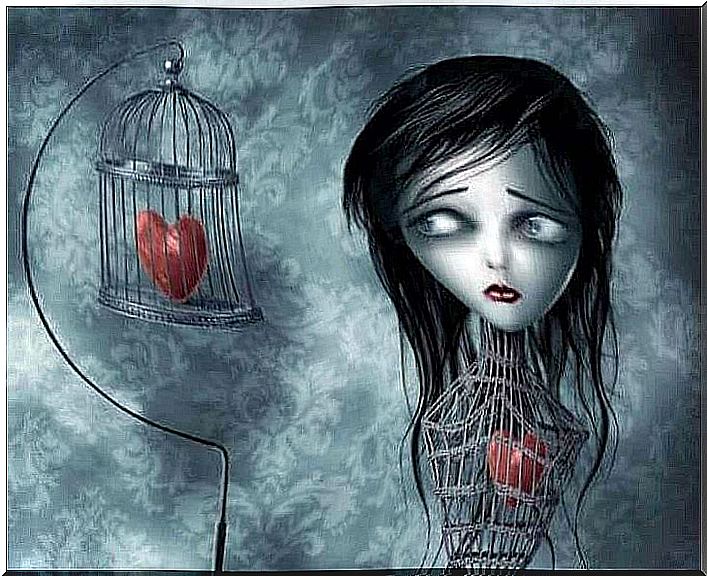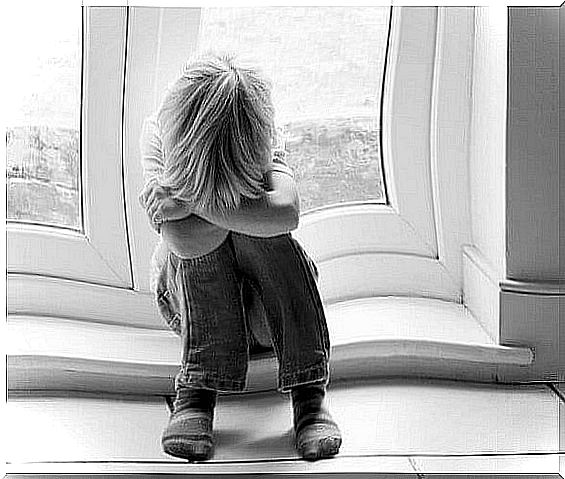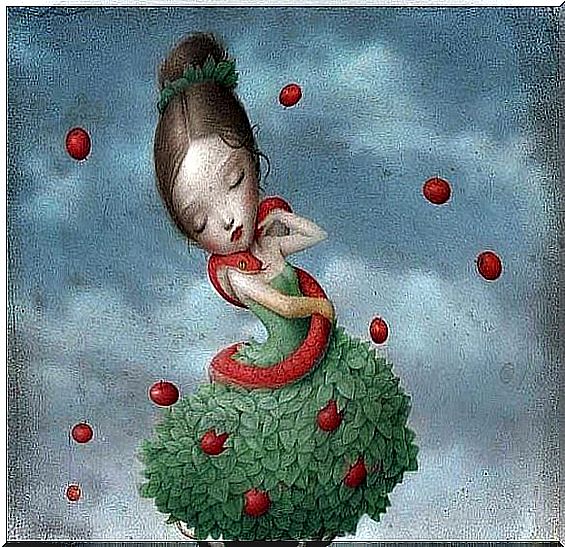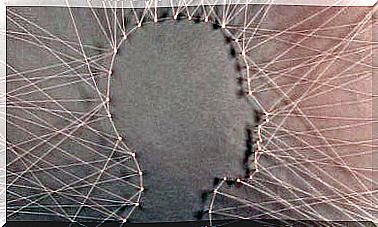The Unconscious Narcissism In The Relationship Between Parents And Children

Narcissism, understood as the love of oneself and the constant search for satisfaction that gives admiration, is present in relationships between parents and children. Parents project a tremendous impulse to live and love on their children. However, this impulse is often conveyed by their desires to a greater or lesser degree. This is something that suggests the relationship to a non-egomaniac narcissism, but is still longing or expectation.
Literature and theory are more about how children interact with their parents, rather than the other way around. Therefore, it is difficult to find clear references to narcissism that are present in relationships between parents and children in the literature. It is understood as seeing what is foreign as their own or seeing the child’s characteristics as their own.
Freud showed the first interests in this phenomenon. He theorized the existence of a tendency to attribute all perfections to the child. (It should be noted that he only treated the way the parents formed relationships with their children). This is noticed at the beginning of the relationship between parents and children when the baby becomes His Majesty.

Narcissism in the relationship between parents and children
The phenomenon ” His Majesty the Baby” is thus a way for the adults to renew the privileges they imagine they had as children that they had to leave behind in childhood. We observe that parents give their children excessive privileges and spoil them. They worship their qualities and then demand that their development be in accordance with their master plan.
Many parents end up projecting “their ideal self” on their children, so that they become a “perfected and perfectionist” version of what the parents think they were or would have liked to have been.
In this regard, parents project their ideals on the child, making the child responsible for the frustrations and deepest desires of the parents’ ego.
That is why, when we talk about unconscious narcissism and projection, a parent’s love becomes more than a love for themselves, for how they think they were as children or how they wanted to be. This too is a way to unfold this loving relationship.

How is it constructed?
Clinical experience causes professionals related to the field of parent-child relationships to dive deeper into the unconscious narcissism that may be present in this type of relationship. In response to this, psychoanalyst Juan Manzano tells us about the four essential elements that make up this unconscious narcissism in upbringing:
1. Projection from the parents of the child
Parents project their own qualities they had or wanted to have as children, qualities that they no longer have or aspects that they felt they lacked. The father or mother who projects on their child does not want the child to lack what they long for or want. In turn , they see the perfect representation of their ideal even in their children. It is possible that this projection is largely unconscious, or that the parents at least never explicitly reflect on this behavior.
2. Complementary identification of parents
The father or mother will consider the son or daughter as part of himself or as a type of internal object to a greater or lesser degree, depending on the parents. This means that the parents identify in a way where they feel a worsened feeling of possession over the child, which in turn hinders the child’s own self-development.

3. Specific purposes
As mentioned , the goal of this projection and complementary identification is the realization of satisfaction for someone with a narcissistic character. However, other purposes, such as denial of loss, may be possible causes of this type of parental behavior.
4. A relational dynamic
The interaction is based on previously assigned roles, so that it will eventually transcend imagination and shape the development of the relationship dynamics with other people and in the child himself. Essentially, this type of relationship creates a fictional profile that ends up becoming a reality.
In pathological cases, children can react in different ways. Sometimes they take on the roles assigned to them, creating disorders that affect them later. This can cause them to rebel later because they feel abandoned. This feeling of being abandoned is due to the simple reason why the relationship between the child and the parents does not exist or is limited. In this connection, the child may feel that their wishes are not their own, but imposed by the parents’ expectations.
NOTE: The content of this article is taken from what appeared in “Narcissistic scenarios of parenthood” by Juan









